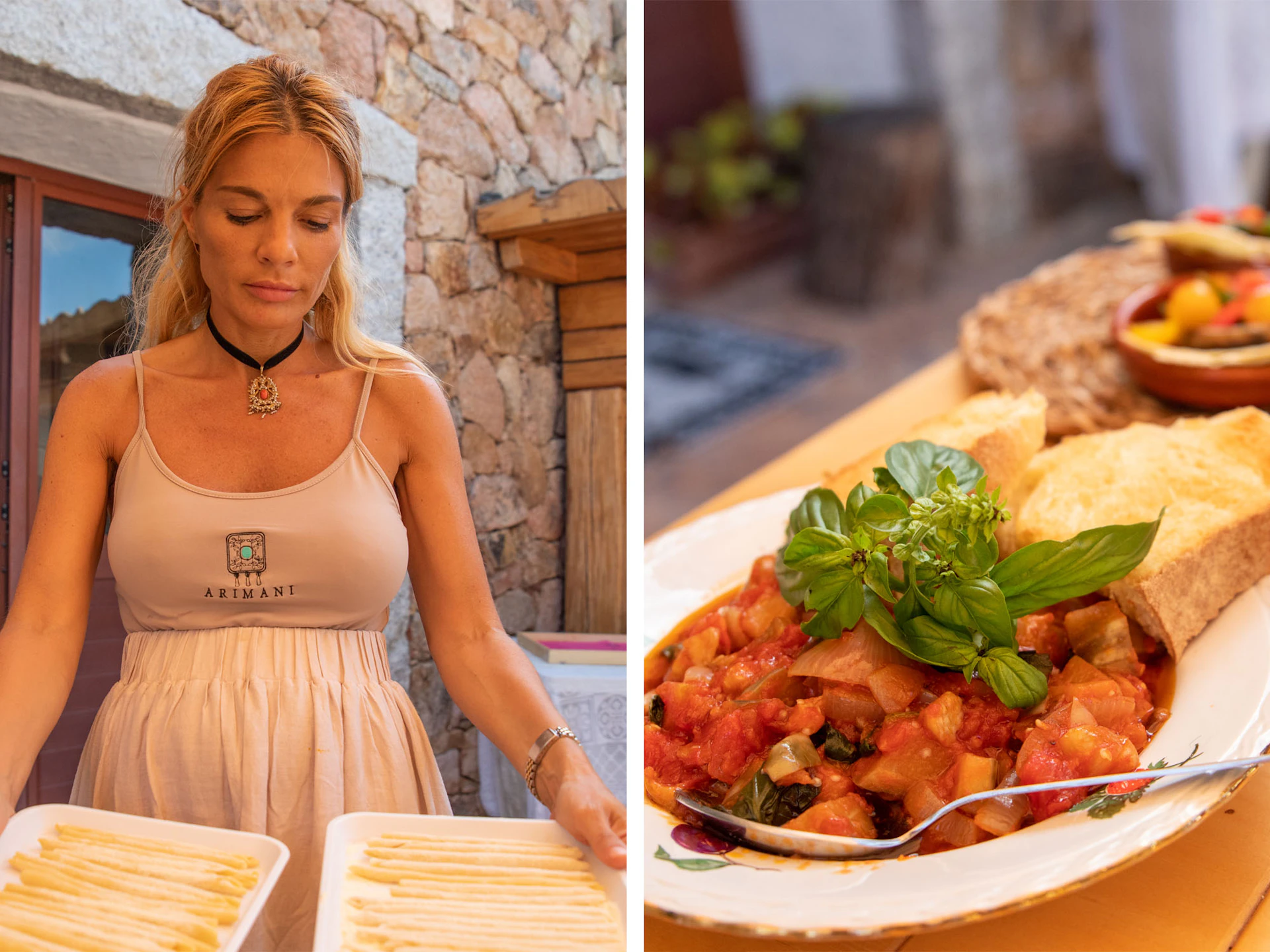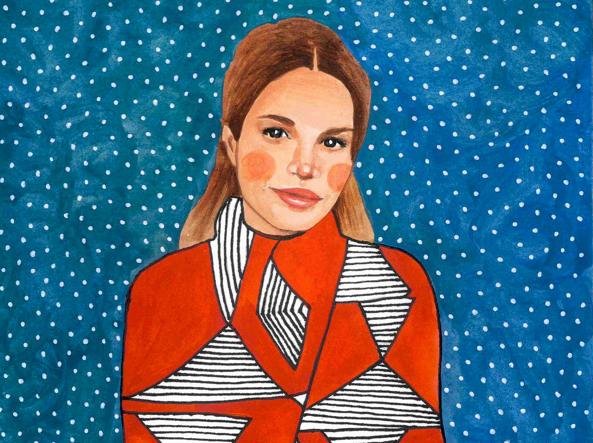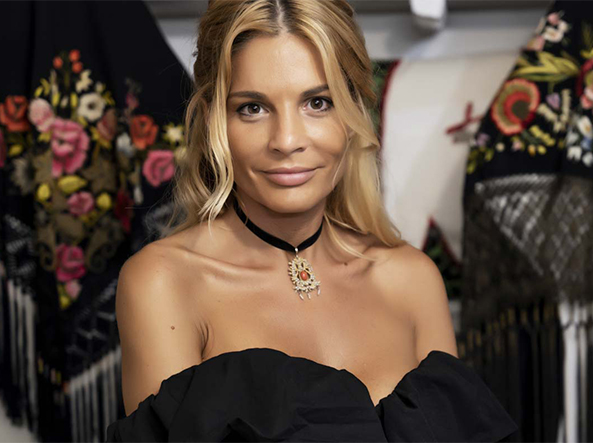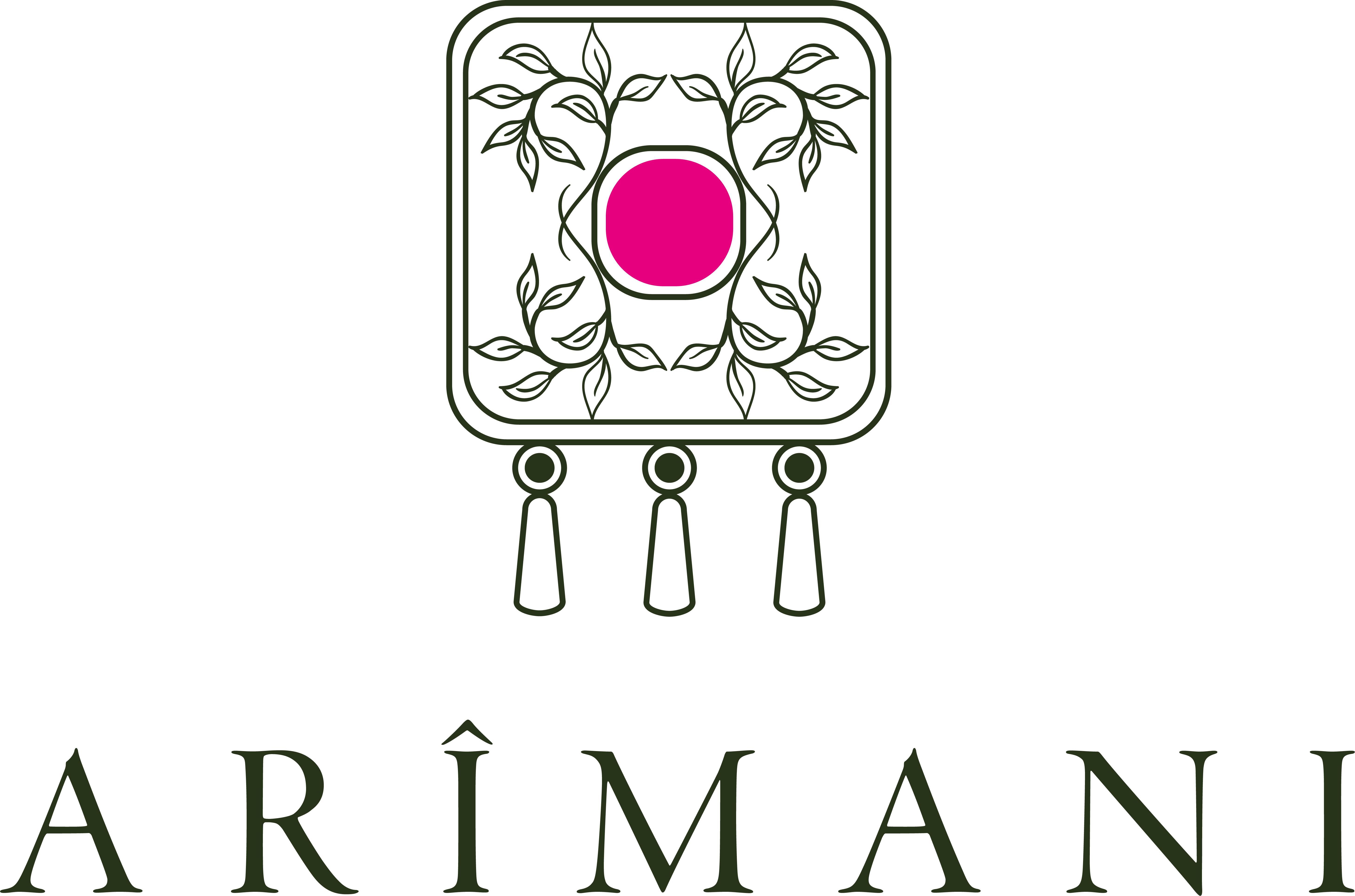lonelyplanet

Her company speaks to her focus on learning from bygone generations the traditions and secrets of their vanishing lifestyles.
Visiting Simonetta Bazzu’s family home an hour south of Olbia, I stand little chance of showing restraint with her rustic, moreish food. The host is a red-blooded local who is as proud of her heritage as anyone I’ve ever met. An expert pasta maker, her company, Arimani (“Yesterday” in the local Gallurese dialect ) speaks to her focus on learning from bygone generations the traditions and secrets of their vanishing lifestyles. Over the summer tourist season, she runs courses to teach visitors some of what she’s learned from her forebears.
Bazzu herself looks as though she could slide into life in Porto Cervo without even changing clothes, and though she assures me it isn’t true, she also looks like she’s never eaten a carb in her life. Wearing vertiginously high heels which clack across stonework, then sink gently into the soil of her garden, she brings out plate after plate of homemade Sardinian breads, pastas and salads gathered from around her 200-year-old family home. The 38-year-old is aware of her island’s history since malaria was eradicated, but she’d rather focus on its other famous health claim to fame – its Blue Zone status.
“Here we have 200 different types of pasta, 1300 types of bread – I love the discotheque, but I make cheese like my grandmother,” says Bazzu, who tells me that even within her family, there are two centenarians. “Why do we live so long? Making pasta is one of the secrets. It’s a sport. Red wine is next, especially the cannonau(Grenache). Sardinians drink it every day, and it also helps with longevity. The next is our food – we eat cheese, and honey, and almonds. Then there is the domestic work. Personally, I don’t drink wine, but I think I’m going to live a long life.”






